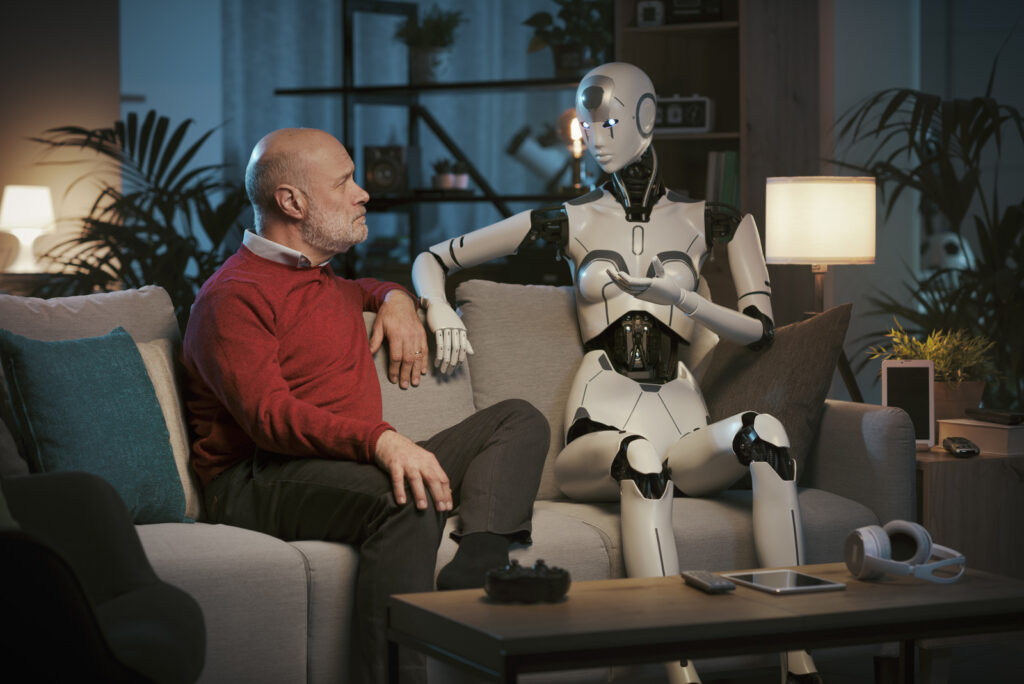I remember the first time I tried using an AI personal assistant. I was skeptical—would it actually help, or just be another gimmick? Fast forward to today, and I can’t imagine my daily routine without it. Whether it’s scheduling meetings, setting reminders, or just answering random questions, my AI assistant has become a reliable sidekick.
If you’ve been on the fence about using one, or if you’re just curious how they work, here’s a breakdown of why I think they’re worth trying.
What Exactly Is an AI Personal Assistant?

An AI personal assistant is a digital tool that helps you manage tasks using artificial intelligence. You’ve probably heard of Siri, Google Assistant, or Alexa—those are the big names. But there are others, like Microsoft’s Cortana or newer apps that specialize in productivity.
These assistants use natural language processing (NLP) to understand what you’re saying and respond in a way that feels (mostly) human. They can do things like:
- Set reminders and alarms
- Send messages or emails
- Answer questions (like “What’s the weather today?”)
- Control smart home devices
- Schedule appointments
Some even learn your habits over time and suggest things before you ask, like reminding you to leave early if traffic is bad.
How I Use Mine Every Day

At first, I only used my AI assistant for basic stuff—setting timers while cooking or asking for the weather. But the more I used it, the more I realized how much time it saves. Here’s how I rely on mine now:
1. Managing My Calendar
I used to forget meetings all the time. Now, I just say, “Hey [Assistant], schedule a meeting with John at 2 PM on Thursday,” and it’s done. If something changes, I can reschedule without opening my calendar app.
2. Quick Information
Instead of Googling things, I ask my assistant. “How many ounces are in a cup?” “What’s the capital of Australia?” It’s faster than typing, especially when my hands are full.
3. Hands-Free Tasks
When I’m driving, I can send texts or make calls without touching my phone. I also use it to play music or podcasts just by asking.
4. Smart Home Control
I have a couple of smart lights and a thermostat. Saying, “Turn off the living room lights” or “Set the temperature to 72” is way easier than fiddling with apps.
The Downsides (Because Nothing’s Perfect)
As much as I like my AI assistant, it’s not flawless. Sometimes it mishears me—I’ll say “Call Mom” and it calls someone completely different. There are also privacy concerns since these assistants are always listening for their wake word (like “Hey Siri”).
Another issue is that they don’t always understand context. If I ask, “What’s on my schedule tomorrow?” it works fine. But if I say, “Do I have anything important coming up?” it might not give the right answer.
Still, for me, the convenience outweighs the hiccups.
Choosing the Right One for You
Not all AI assistants are the same. Here’s a quick look at the most popular ones:
- Siri (Apple) – Great if you’re deep in the Apple ecosystem (iPhone, Mac, HomePod). It integrates well with Apple apps but isn’t as strong on non-Apple devices.
- Google Assistant – Works on Android phones, Google Home, and even some third-party devices. It’s really good at answering questions since it pulls from Google’s search engine.
- Alexa (Amazon) – Best for smart home control. If you have a lot of Amazon smart devices (Echo, Ring, etc.), Alexa is a solid choice.
- Cortana (Microsoft) – Less common now, but still useful if you use Windows a lot.
If you’re not sure which to pick, think about what devices you use most. An iPhone user will probably prefer Siri, while an Android user might like Google Assistant better.
Will AI Assistants Replace Human Assistants?

Probably not anytime soon. While AI assistants are great for simple, repetitive tasks, they can’t handle complex decisions or emotional nuance. A human assistant understands tone, adjusts to your mood, and thinks creatively—AI isn’t there yet.
That said, for everyday help, AI assistants are a game-changer. They’re like having a mini-helper that’s always available.
Final Thoughts
I wasn’t sure if I’d stick with an AI assistant when I first started using one, but now I’d feel lost without it. It’s not perfect, but it saves me time and makes small tasks easier. If you haven’t tried one yet, I’d say give it a shot—start with simple commands and see how it fits into your routine.
Who knows? You might end up relying on it as much as I do.